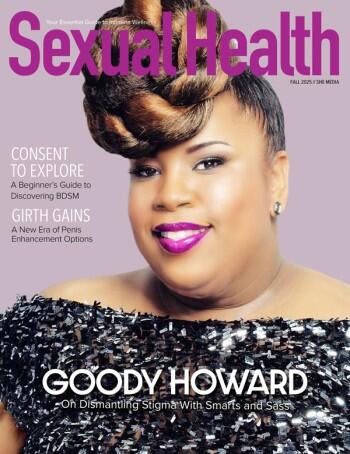Leading cosmetic company Lush has completely turned its back on the top social media platforms, stating simply, “Be Somewhere Else” on its otherwise empty profile pages. In an Instagram Highlight, Lush states that it will “only use platforms that do their very best to protect users from harassment, harm and manipulation” and that it is “choosing to leave Facebook, Instagram, Snapchat and Tiktok until they provide a safer environment for their users.”
Jack Constantine, Lush’s chief digital officer, told Forbes, “We just can’t condone platforms when we know what they’re doing and you get a whistleblower situation and they don't change anything about the policy. Ultimately the audience that is looking at Lush is teenage girls, the same ones the stats are saying there’s high suicide rates. At what point do you draw a line and say we can't be associated with that and that's not where we are as a brand? The decisions we make are not always about popularity, they're much more about where we are within our principles and where we feel comfortable. It means making hard choices.”
Taking bold measures and potentially controversial actions can attract press coverage, earning new followers while boosting the loyalty of existing customers.
This is a bold statement and even bolder action, as Facebook and Instagram are often the driving factors in any social media and digital marketing strategy. For any brand, especially a mainstream one, to exclude both platforms from its plan requires strengthening other marketing efforts to compensate, at the very least.
Here are three lessons that other sex-positive brands can take from Lush’s marketing decision.
Digital marketing can be multifaceted
In the absence of a Facebook and Instagram presence, all of Lush’s brand messaging is now communicated through its newsletter, YouTube, Pinterest and its own mobile app. This is a valuable reminder for adult marketers not to become so consumed with the top players in the social media environment that they fail to get innovative with other elements of their marketing strategy.
Rather than relegating newsletters and YouTube solely to complementary and supportive roles, these alternative channels can be explored as ways to generate genuine connections. Creating engaging and entertaining multimedia content on non-Meta platforms can help nurture a loyal following and customer base — genuine relationships with users that can convert to sales.
Identify the target audience and align the brand accordingly
Lush’s move is likely to resonate deeply with Gen Z. Virtually every major piece of marketing research indicates that Gen Zers’ core ideological values really drive their habits and behavior. Customer trust and loyalty is strengthened when they believe a brand aligns with their own beliefs, and Lush — which has a long history of taking stands against injustices, from animal testing to horse racing — is certainly sending that message. Thus, in addition to making what it considers the conscientious choice, Lush has also accurately identified its target audience and positioned itself in a way that appeals to that audience.
Accurately building a buyer persona can help a brand anticipate customer behaviors and trends. A brand that knows exactly where its audiences are, what their online habits are like and how they are thinking, can better ensure that these spaces are populated by their brand message. They can also communicate more fluently in a language their target audience understands, which can build strong connections and relationships, and ultimately win new customers.
Industry disruptors get noticed
Lush has become a market leader in the cosmetic and beauty industry in part by differentiating itself from its competitors. This latest move by Lush, separating itself from major social media platforms, has essentially become its own campaign. The focus quickly shifted from the messaging of the campaign to its method of delivery, launching a discussion amongst advertisers and marketers that reached wider than the beauty industry.
Taking bold measures and potentially controversial actions can attract press coverage, earning new followers while boosting the loyalty of existing customers. A creative campaign that disrupts the norm of any industry is going to attract attention, and can earn a brand recognition in the wider marketplace as well.
Scarlett Ward is the affiliate and influencer manager at Little Leaf Agency, a PR and communications agency dedicated to sexual wellness.








